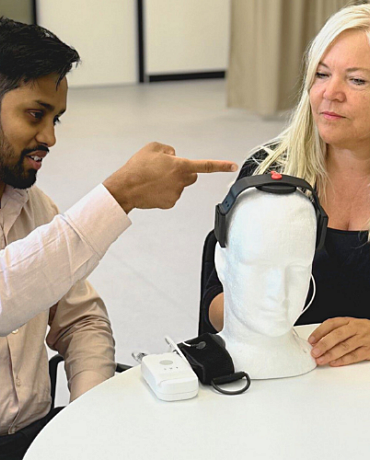- Cases of dementia are projected to nearly triple by 2050, with the Western Pacific Region (WPR), where Australia is located, expected to contribute more than 50 per cent of cases, as published in this research series.
- Australia needs to play a critical role in leading dementia care, prevention and research across the WPR, particularly in supporting low- and middle-income countries.
- Researchers from Neuroscience Research Australia (NeuRA) have published a new five-paper Series in The Lancet Regional Health-Western Pacific journal that proposes a regional roadmap with four strategic actions to address this escalating health crisis.
A regional roadmap to tackle the escalating challenge of dementia in Australia and the Western Pacific Region has been released by NeuRA and published in The Lancet Regional Health-Western Pacific journal.
While the region has 20 per cent of the world’s population, new research reveals that it will be at the epicentre of the global dementia crisis. The region, which has one of the largest and fastest growing older populations in the world, is according to this research series, expected to account for more than 50 per cent of global dementia cases by 2050 with its diverse economic and cultural landscape presenting unique challenges and requiring urgent, coordinated strategic action.
The roadmap is part of a series of five papers published in The Lancet Regional Health – Western Pacific journal launched today at NeuRA during an event opened by the Hon Mark Butler, MP, Minister for Health and Aged Care.
“Dementia represents one of the most serious challenges for our health system for the coming decades,” Mr Butler said. “I am pleased to see the regional roadmap released today, which echoes our commitment to ensuring Australia takes a leadership role in dementia research, treatment and care.”
Dr Jashelle Caga-Meller, Deputy Editor of The Lancet Regional Health-Western Pacific, reinforced the importance of this launch partnership with NeuRA: “This series emphasises the unique challenges dementia poses in the Western Pacific region and our commitment to driving impactful research.”
Professor Matthew Kiernan AM, CEO and Institute Director of NeuRA, added: “We are very pleased to partner with The Lancet Regional Health-Western Pacific to shine a light on the critical need to address dementia in our region and, importantly, propose a clear direction forward. This series represents the first detailed examination of dementia in the WPR based on the best available scientific and clinical evidence, marking a significant milestone in understanding of the issue and the actions which need to be taken.”
Strategic actions
The roadmap outlines four key actions to combat the dementia crisis, tailored to the unique challenges of the WPR:
- National Dementia Plans: Implementing national dementia plans across the 37 WPR countries that are culturally appropriate and engage local communities
- Prevention education: Developing education programs that focus on modifiable risk factors. Global estimates indicate up to 45 per cent of new cases of dementia can be avoided by targeting lifestyle factors, yet in the WPR there are widespread misconceptions that dementia is a normal part of ageing.
- Accelerating diagnoses: Integrating models of care tailored to the diverse cultural and ethnic groups in the WPR and expanding supportive services for carers.
- Prioritising regional research: Addressing research gaps through regional research focused on the diverse populations within this region. Currently, dementia research accounts for less than 3 per cent of the total global health research output with the WPR contributing 0·7 per cent.
Spotlight on prevention
Dementia prevention was also considered, looking at the modifiable risks that can assist with preventing or delaying dementia. In particular, the research identified depression and mental health issues represent significant modifiable risks for dementia, and both are on the rise.
“Research now suggests that 45 per cent of dementia cases are potentially preventable by addressing 14 modifiable risk factors at different stages of life,” Prof Kiernan said. “Other underrecognised modifiable factors include low educational attainment, cardiovascular risks such as obesity, hypertension, diabetes, hearing loss and sleep disturbances.”
“The research highlighted the critical importance of tailoring education to local populations,” Prof Kiernan added. “As highlighted in this series, over 90 per cent of studies into genetic risk factors have been conducted on individuals of European ancestry, limiting their applicability to diverse population. Therefore, it is essential that prevention initiatives incorporate awareness of cultural diversity to be effective.”
Supporting low- and middle-income countries
“As one of only nine high-income countries in the WPR, Australia has a responsibility to play a leadership role in improving dementia prevention, diagnosis and care across the region,” Prof Kiernan said. “This series highlights the critical need to strengthen support across the region for people with dementia, as well as those who provide that care, in both formal and informal settings.”
“In contrast to the formal care options available in Australia, in low- and middle-income countries care is predominantly provided informally, by family members,” Prof Kiernan added. “Women and girls are disproportionately affected due to more limited access to education, with more women taking on caregiving roles and the incidence of dementia also being highest among women. Enhancing access to dementia care is essential for improving outcomes for women, both across the region and around the world.”
The reports are available here.







